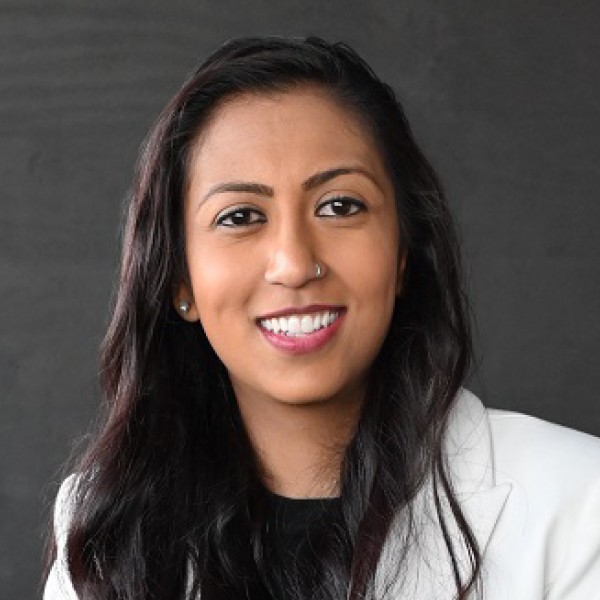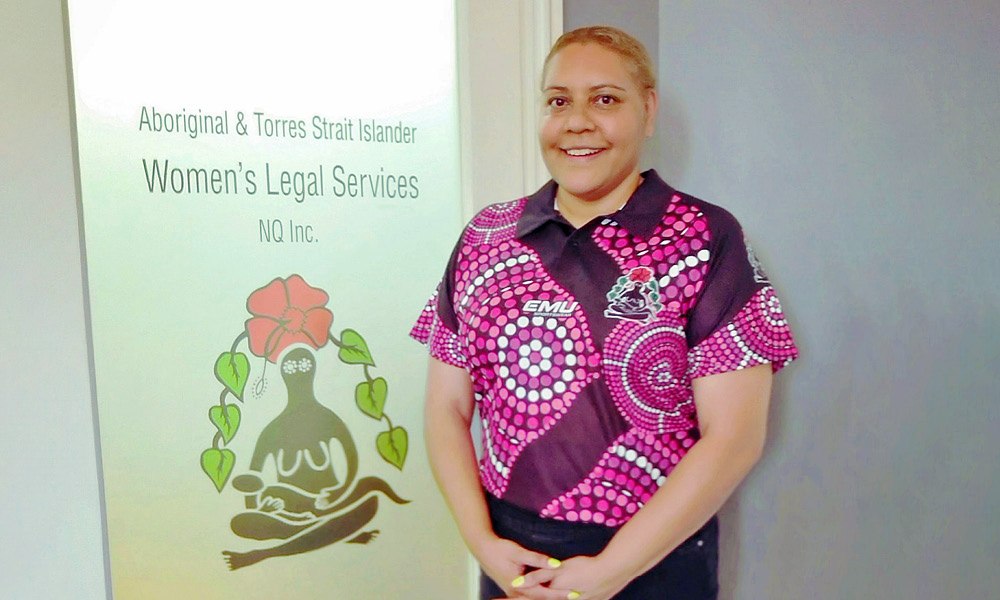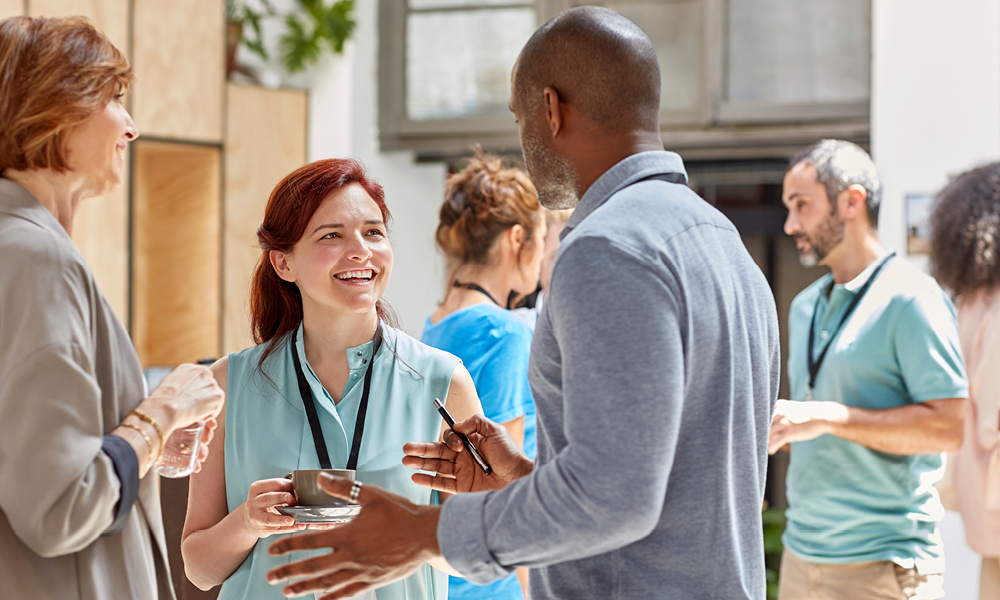Asserting your right to exist, your right to be human, is not a choice, it is a necessity.
This was a message instilled in Karen at an early age and has stayed with her through her legal studies and her current work with the Aboriginal and Torres Strait Islander Women’s Legal Services North Queensland Inc.
Karen is yet to obtain her practising certificate, but when she does, she’ll be joining a pool of only 86 practising certificate holders who identify as First Nations. That’s 86 out of 13,250 Practising Certificate holders in all of Queensland.
QLS acknowledges the First Nations peoples as the original inhabitants and custodians of Australia. We recognise, respect and celebrate the cultural distinctions of First Nations Peoples and our vision is to support and advance First Nations peoples to effect positive change.
We thank Karen for sharing her journey with us and in doing so, allowing us to not only improve visibility of First Nations lawyers, but hopefully encourage and empower those considering a career in law to forge ahead and assert their right not just to be human – but to a fulfilling career in law.
—
Wadda Mooli. I pay my respects to the First Peoples of the lands and waters where you are while reading this. I see your elder’s past, present and emerging.
SD: Tell us a bit about yourself
KJ: I am a proud Kuku Yalanji, Waanyi, Birri Gubba, Mununjali woman. At a very young age, it was instilled in me that you have to stand up, you have to use your voice.
I was guided to understand that:
- Asserting your right to exist, your right to be human, is not a choice, it is a necessity
- Regardless of the odds, and adversity, you must have a rigorous work ethic
- Work towards understanding the worth in being educated by all forms of learnings, formal and informal
- You have to work on maintaining a sense of self and cultivate the skills you need to learn to harmonise all the facets of your identity
- Everything you do, be imbued with pride, resoluteness and a reflection of the world you want to leave for all generations to follow.
SD: Why you are studying/practising law?
KJ: My reason for studying law was to understand one of the main societal mechanisms that influences, directs, and manages people’s lives.
SD: Why is it important more First Nations People study and practice law?
KJ: I see it this way – Why would you not want to know about the very instrument that prescribes who you are, how, where and when you can exercise and express what makes you, you?
I believe it is imperative that First Nations People study, and go on to practice, law. First Nations People have an innate ability to add humanness to institutions and systems.
It is vital that First Nations People engage with, and be part of, the law, at a professional level because the law should not be kept entirely at arm’s length from the very peoples, and societies, it is meant to represent, protect and adjudicate.
SD: What was your journey in studying/becoming a solicitor/barrister?
KJ: My law journey started as a mature age student. I moved from Queensland to Victoria to pursue my legal studies, because I wanted to become more informed by a different world view.
The law had always been a cold, distant stranger to me. I n my personal experience, the law has been used to take everything from my Aboriginal grandparents, great-grandparents, great-great-grandparents, and so forth. Both my parents are born on former Aboriginal reserves, my mother on Palm Island and my father on Cherbourg (formerly known as ‘Barambah’).
My grandparents, great-grandparents and great-great-grandparents did not get paid for their labour; and/or had what little property they possessed stripped from them. This was done through legislation and government policies, leaving my parents to contend with racism, violence in all forms, plus intergenerational poverty.
I used to see the law as a weapon of injustice, inequality, and racism. When I decided to study law, what struck me most was when I told people I was a law student, almost magically, I was assigned with social capital and value. Something that I had never experienced before, outside my family. As I progressed in my legal journey, I began to see the law as a nuanced and challenging tool that provided a pathway for me to reach my self-determination and have the confidence to stand in my power.
My journey towards being a solicitor, and perhaps a barrister, has made me realise I have an opportunity to do what my grandparents, great-grandparents, and great-great-grandparents were not allowed to do. My law journey is a realisation of the inconceivable.
I am very grateful to have met the legal professionals and law students I have in my law journey. I am very appreciative of the support I received from Tarwirri – the Aboriginal Law Students and Lawyers Association of Victoria. I have to extend my gratitude and appreciation to the Indigenous Justice Committee of the Victorian Bar Association. I am humbled and thankful to all the Justices, Barristers, Solicitors and lecturers I have had the pleasure to meet and engage with.
My inspiration to study law comes from my old people. It is their fortitude in the face of what could be described as insurmountable loss and heartbreak, which consolidates my resolve to achieve what in the not so distant past was legally prohibited for my grandparents, great-grandparents and great-great-grandparents.
Last, and certainly not least, I pay homage to my ancestors, family and friends. Their tenacious will is a constant source of hope and motivation. Yalada.
SD: Where would you like to see the legal profession in 5 years or 10 years?
KJ: In five years, I would like to see the legal profession progress the implementation of, and advocacy for, all 339 recommendations of the 1991 final report of the Royal Commission into Aboriginal Deaths in Custody. Also, there be a better understanding of the scope and intersectionality of issues that are factors in family and domestic violence, especially in minority and ethnic communities.
Additionally, I would like to see a program like the Indigenous Clerkship Program championed by the Indigenous Justice Committee of the Victorian Bar Association, available to all law students that are unfamiliar with the ambit of functions undertaken by barristers and various courts. This program is a great opportunity for knowledge exchange, as it provides a mechanism for the judiciary and barristers to engage with law students.
In 10 years, I would like to look back on the great work achieved in the legal profession through its implementation of, and advocacy for, the Royal Commission into Aboriginal Deaths in Custody 1991 final report.
Further, have systems in place to better officiate family and domestic violence matters, along with the greater understanding of the insidious continued and ongoing lasting effects of trauma survivors of violence experience.
Plus, provide more diversionary pathways, which is imbued with the basic tenants for good mental health, for young offenders to enable them to engage in programs that introduce them to healthy self-esteem and self-reflection, that harnesses the competencies they possess to enable a reconstruction for a positive self-image. This can assist in building skills, such as greater self-regulation.
Overall, the legal profession, and areas the profession influences, play a pivotal role in demonstrating that inclusion, equity, diversity and fairness are more than words or key performance indicators in a document.
SD: What do you think we can do, as a profession, to help realise that 5-10 year vision?
KJ: ‘Do or do not. There is no try’. 1
The foundation of realising any vision must start with optimism, honesty, the sincerity of intention and conscientious action.
Not to take anything away from the mammoth efforts of the legal profession at all, however, there is still more to be done. It should not be individuals that take up the challenge to implement learnings to influence the profession’s culture, and norms, around diversity, equity and inclusion, it has to be a concerted combined effort.
Beyond access, the profession is well-positioned to be the leader in demonstrating true engagement and reconfiguring participation to be greater than time spent in an office, or on zoom or teams, and sitting at a desk.
Law societies, barrister associations, law schools, the courts, and so on, all have a role in pursuing avenues to increase inclusiveness through enacting recommendations of royal commissions, commentary from inquests or case law, etc. These instruments assist in constructing a framework addressing inequity, injustice and racism.
If you are an individual that wishes to expand your cultural competency, you can read some of the massive amounts of information available. Also, there are webinars, committees, and other forums to avail yourself to be informed of, and engaged with, to influence the profession’s culture, and norms, around diversity, equity and inclusion.
SD: What advice do you have to the next generation of lawyers?
KJ:
- BREATHE! It is ok to pause and be.
- Get restful sleep.
- Stay hydrated.
- Show appreciation of others time. Thank them for it.
- Remember to savour your time, manage it with care and purposefulness.
- Those dealing with a legacy of colonisation in the form of lateral violence –
- It is ok to be more for yourself and your life;
- You are a role model, leader, inspiration, and the embodiment of a dream;
- You have a right to participate in this world;
- Stay Your Course.
- ‘With great power comes great responsibility.’ 2 Please never forget, you are a remarkable sentient being who is the reflection, or representation, of the diversity and richness of a world that needs you to be the torchbearer of truth, fairness, and a just application of laws, to strive against inequities so they are not enforced, reinforced and/or solidified.
You Got This.
- From Star Wars – Episode V: The Empire Strikes Back, spoken by Master Yoda.
- From Marvel’s Spider-Man, spoken by Uncle Ben.











Share this article